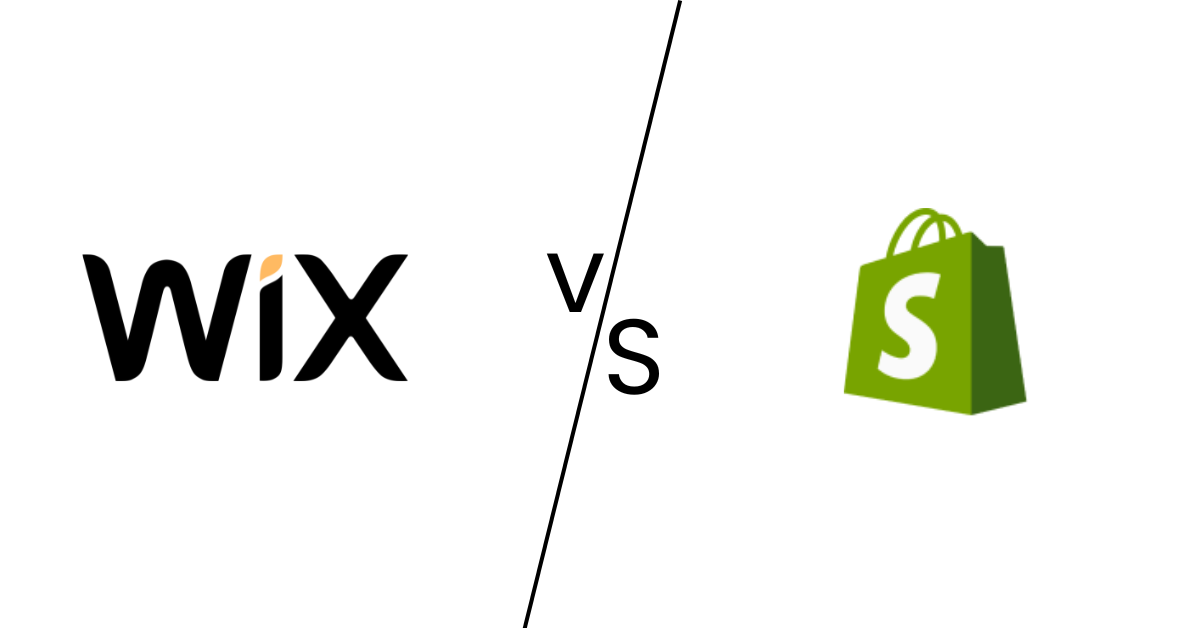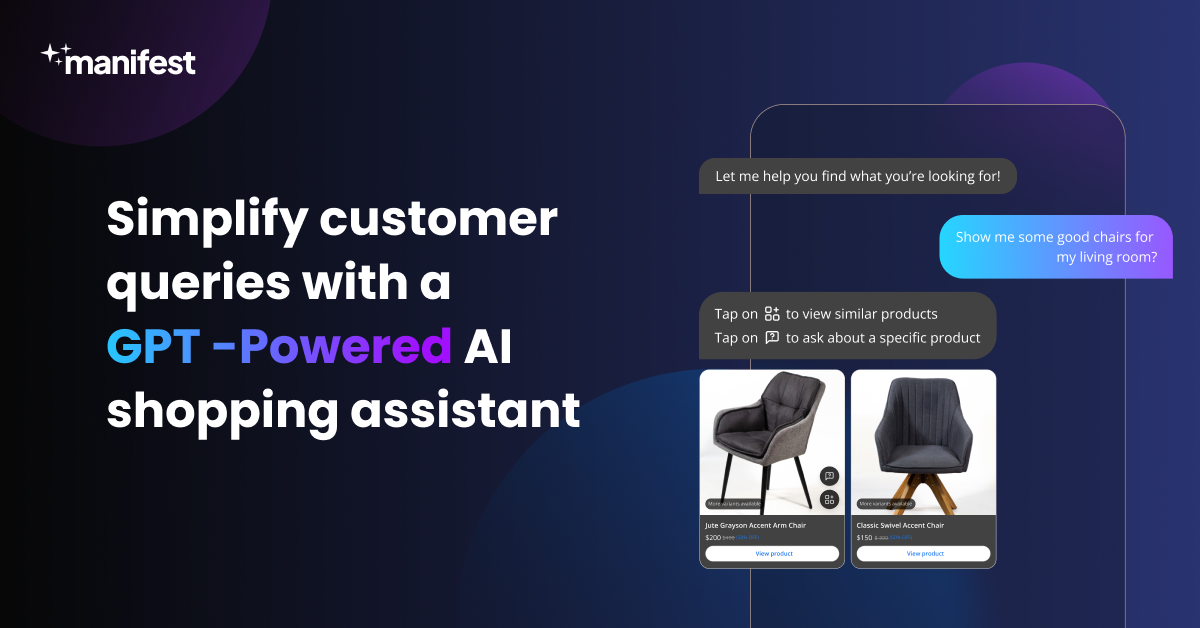Wix vs Shopify: Which One is Better For Businesses (2024)

Starting a business is exciting, but choosing the right platform to build your online presence can be overwhelming. Two popular options, Wix and Shopify, cater to different needs. This blog post dives deep into Wix vs Shopify strengths and weaknesses in 2024, helping you make an informed decision. Whether you prioritize design flexibility and ease of use (Wix) or robust e-commerce features and scalability (Shopify), we'll unveil the pros and cons of each platform, guiding you towards the one that fuels your business growth.
Wix vs Shopify: Overview
Here's an overview of both platforms Shopify vs Wix:
Wix

Wix is an all-in-one website builder that caters to a diverse range of users, from individuals and small businesses to creative professionals. It's recognized for its user-friendly drag-and-drop interface, allowing users to easily create websites without coding skills. While Wix initially gained popularity for general website building, it has expanded to include robust e-commerce capabilities.
Shopify

Shopify, on the other hand, is a specialized e-commerce platform designed explicitly for businesses looking to establish and manage online stores. It has gained popularity for its focus on providing a seamless and efficient experience for e-commerce entrepreneurs. Shopify streamlines the process of setting up an online store and offers a range of tools tailored to the needs of online retailers.
Wix vs Shopify: Features
Both Wix or Shopify offer a range of features, but they are designed with different focuses in mind. Here's a difference between Wix and shopify features:
Wix
Drag-and-Drop Website Builder: Wix is renowned for its easy-to-use drag-and-drop editor, allowing users to build websites visually without coding.
Template Variety: Wix offers a diverse selection of templates for various industries and purposes. Users can choose a template as a starting point and customize it to fit their brand.
App Market: Wix has an App Market where users can find and integrate third-party applications to enhance their website's functionality. This includes apps for e-commerce, marketing, analytics, and more.
E-commerce Features: Wix provides a comprehensive set of tools for building and managing online stores. Features include product pages, inventory management, multiple payment options, and the ability to create discounts and coupons.
Flexibility: Wix is flexible and suitable for a variety of websites, not just e-commerce. Users can easily add different types of content and customize layouts.
SEO Tools: Wix includes SEO features to help users optimize their websites for search engines. This includes meta tags, alt text for images, and customizable URLs.
Shopify
E-commerce Focus: Shopify is specifically designed for e-commerce, offering a comprehensive set of tools to create and manage online stores.
Store Management: Shopify excels in inventory management, order processing, and customer management. It provides tools for tracking inventory levels, fulfilling orders, and managing customer information.
Payment Options: Shopify integrates with a wide range of payment gateways, allowing merchants to accept payments seamlessly. It also has its payment gateway, Shopify Payments.
Template Designs: Shopify offers professionally designed templates optimized for e-commerce. While customization is available, the focus is on providing a visually appealing and functional storefront.
App Store: Similar to Wix, Shopify has an extensive App Store where users can find apps to add features and functionalities. These apps cover areas such as marketing, sales channels, and customer support.
Security and Reliability: Shopify prioritizes security and reliability, ensuring that online stores are secure and transactions are conducted safely.
Wix vs Shopify: Pricing
Shopify vs Wix Pricing is quite important. For enterprises, both platforms offer an extensive range of configurable possibilities. Let's compare Wix and Shopify:
Wix Pricing

Shopify Pricing

Wix vs Shopify: Reviews
Choosing between Wix or Shopify for ecommerce can be tough, especially when both platforms have their own strengths and weaknesses. To help you make an informed decision of Wix vs Shopify, let's dive into some Shopify & Wix reviews:
Wix Pros & Cons
Pros:
- Ease of use: Often praised for its drag-and-drop interface and intuitive design tools, even for beginners.
- Design flexibility: Wide range of templates and customization options to create unique websites.
- Free plan: Great for testing the platform or building simple websites.
- All-in-one solution: Includes website building, email marketing, and SEO tools.
Cons:
- Limited e-commerce features on lower plans: May not be suitable for complex online stores.
- No built-in blogging functionality: Requires connecting external apps.
- App fees can add up: Expanding functionality with apps can increase costs.
- Limited customer support on free plan: Paid plans offer priority support.
Here are some quotes from Wix users:
"Wix is perfect for creating a beautiful website quickly and easily. I love the drag-and-drop interface and the wide range of design options." - Sarah K., Entrepreneur
"While Wix is great for basic websites, I found its e-commerce features lacking for my growing store. Upgrading plans became expensive with additional app fees." - John D., Online Shop Owner
Shopify Pros & Cons
Pros:
- Robust e-commerce features: Designed specifically for online stores, offering powerful sales tools, inventory management, and shipping options.
- Scalability: Grows with your business, supporting large product catalogs and high traffic volumes.
- App Store: Extensive marketplace for adding features and integrations to customize your store.
- Strong customer support: Available 24/7 through various channels.
Cons:
- Steeper learning curve: More complex interface compared to Wix, especially for beginners.
- No free plan: Only offers a 14-day trial.
- Transaction fees: Can add up for businesses with high sales volumes.
- Design flexibility may be limited: Templates are often more structured compared to Wix.
Here are some quotes from Shopify users:
"Shopify is a powerful platform for building a successful online store. The e-commerce features are top-notch, and it's easy to scale as my business grows." - Emily L., E-commerce Entrepreneur
"While Shopify offers great features, the initial setup was more challenging than Wix for someone with no coding experience. The transaction fees also eat into profits, especially for smaller businesses." - David M., Online Artisan
Grow your Shopify Store with AI

Integrating Manifest AI into your Shopify store brings a comprehensive set of AI-driven features that significantly enhance the functionality and efficiency of your e-commerce operations. Here's a breakdown of how Manifest AI can contribute to the growth and success of your online business:
- Personalized Shopping Experiences: Uses customer data to offer personalized product recommendations, making every visit more relevant and engaging for your shoppers.
- Instant Customer Support: Features AI-powered chatbots that provide real-time assistance, quickly addressing customer inquiries and boosting satisfaction levels.
- Efficient Inventory Management: Employs predictive analytics to help you manage stock levels more effectively, ensuring popular items are always available.
- Enhanced Marketing Strategies: Analyzes customer behavior to develop targeted marketing campaigns, leading to higher engagement and customer loyalty.
- Informed Decision-Making: Delivers valuable insights into customer preferences and trends, assisting in strategic planning for product selections and store enhancements.
- Increased Sales: The combination of personalized shopping experiences and instant customer support not only improves conversion rates but also fosters repeat business, propelling your store's growth.
Wix vs Shopify: Dropshipping
Both Wix and Shopify can support dropshipping businesses, but they have different approaches and features that cater to this e-commerce model. Here's a comparison of
Wix vs Shopify for dropshipping:
Wix for Dropshipping
Dropshipping Apps: Wix has an App Market where you can find various apps to enhance your online store. Some apps in the marketplace are specifically designed for dropshipping.
Oberlo Integration: While Oberlo is typically associated with Shopify, Wix has also integrated Oberlo into its platform. Oberlo simplifies the process of sourcing and selling products through dropshipping.
Print on Demand: Wix allows integration with print-on-demand services, allowing you to create and sell custom-designed products without holding inventory.
Product Sourcing: Wix provides options for connecting with dropshipping suppliers, allowing you to source products without having to manage physical inventory.
Shopify Dropshipping
Built-in Oberlo Integration: Shopify acquired Oberlo, a popular dropshipping app, and integrated it directly into its platform. This integration streamlines the process of finding and selling products from suppliers.
App Store for Dropshipping: Shopify's extensive App Store offers numerous dropshipping apps beyond Oberlo, providing flexibility in choosing a dropshipping solution that fits your business needs.
Print on Demand Integration: Similar to Wix, Shopify integrates with various print-on-demand services, allowing you to sell customized products without holding inventory.
Supplier Network: Shopify has an extensive network of dropshipping suppliers that you can connect with through the platform, offering a wide range of products.
Comparison:
- Wix may be preferable for dropshipping if: You appreciate the ease of integration with Oberlo for product sourcing. You want a user-friendly platform with dropshipping features and additional design flexibility.
- Shopify may be preferable for dropshipping if: You want the built-in Oberlo integration for a seamless dropshipping experience. You prefer a platform with a larger app ecosystem, providing a broader range of dropshipping tools.
Wix vs Shopify: Integrations
Here are some good integrations:
Wix Integrations
E-commerce Integrations:
- Ecwid: Integrates seamlessly with Wix, providing an extensive set of e-commerce features.
- Printful: Allows users to add print-on-demand products to their Wix stores.
Marketing and Social Media:
- Mailchimp: Email marketing integration for creating and managing email campaigns.
- Facebook Pixel: Integrates with Wix for tracking Facebook ad performance.
Analytics and SEO:
- Google Analytics: Provides detailed website analytics and insights.
- Yoast SEO: A tool to enhance on-page SEO and improve search engine visibility.
Communication and Customer Support:
- Wix Chat: Offers a live chat feature to engage with website visitors.
- Wix Forms: Allows the creation of custom forms for lead generation and customer feedback.
Payment Gateways:
- Supports various payment gateways, including PayPal, Stripe, and Square.
Shopify Integrations
E-commerce Integrations:
- Oberlo: A popular dropshipping app for sourcing and selling products.
- Printful: Offers print-on-demand services for customized products.
Marketing and Social Media:
- Klaviyo: Email marketing platform tailored for e-commerce businesses.
- Shopify Facebook Shop: Allows merchants to sell products directly on Facebook.
Analytics and SEO:
- Google Analytics for Shopify: Provides detailed analytics and insights into store performance.
- SEO Manager: A Shopify app to optimize on-page SEO elements.
Communication and Customer Support:
- Zendesk: Integrates customer support tools for managing inquiries and tickets.
- Gorgias: A helpdesk solution for e-commerce customer support.
Payment Gateways:
- Shopify Payments is built-in, but it also supports various third-party gateways like PayPal, Stripe, and others.
Wix vs Shopify: Alternatives
Here are some alternatives to consider based on your needs:
For simple websites
Squarespace: Known for its sleek templates and ease of use, focusing on content-rich websites with limited e-commerce features.
Weebly: Another beginner-friendly option with drag-and-drop editing and affordable plans. Offers basic e-commerce features.
WordPress.com: User-friendly with customizable themes and plugins, but less design flexibility than Wix. E-commerce functionality requires paid plans.
For robust e-commerce
BigCommerce: Scalable platform with powerful e-commerce features, marketing tools, and app integrations. Higher pricing compared to Shopify.
WooCommerce (self-hosted): Open-source plugin for WordPress, offering extensive customization and control, but requires hosting and technical knowledge.
For specific niches
Ecwid: Integrates seamlessly with existing websites, ideal for adding e-commerce to blogs or portfolios. Limited design options.
Sellfy: Geared towards selling digital products and subscriptions, with easy product management and pricing options.
Etsy: Popular marketplace for handmade and vintage goods, offering built-in audience and marketing tools. Limited customization and branding options.
Conclusion
Ultimately, the "better" platform depends on your unique business goals and priorities. Wix shines for its user-friendliness, design flexibility, and affordability for basic websites or content-driven businesses. Shopify reigns supreme in robust e-commerce features, scalability, and seamless integration with specialized tools. If you're still unsure, consider alternatives like Squarespace for simple websites or BigCommerce for high-volume e-commerce. Remember, the ideal platform should empower your business growth, not hinder it. Carefully weigh your needs, budget, and technical skills before making a decision.

.png)
